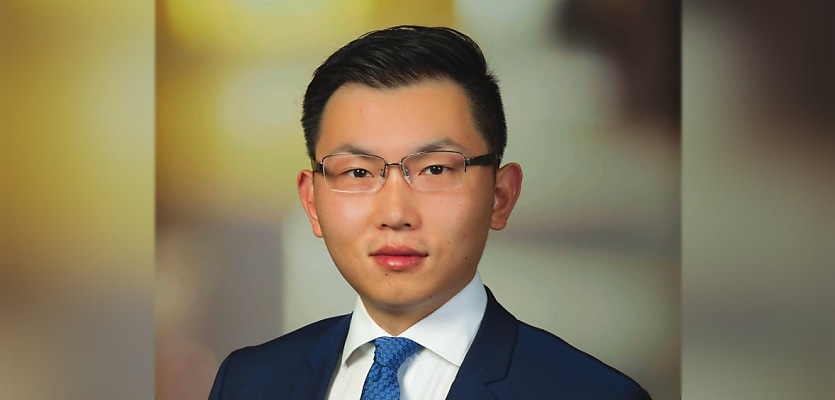Despite the government’s recent move to raise the financial bar for foreigners looking to enter the country’s property market, overseas investors are undeterred and are staying in the commercial property game.
Benson Zhou, the director at Savills Australia, believes that despite financial “deterrents” being put in place by the government, offshore investor interest in the country’s commercial properties — particularly from the Asian region — will remain strong.
The expert’s comment comes off the back of the massive changes to foreign investment rules that became effective on 29 July. Under the new regulation, application fees to the Foreign Investment Review Board (FIRB) have increased by 100 per cent.
While the fees vary, on residential purchases, foreign investors will now pay $13,200 for acquisitions of $1 million or less, rising to a maximum of $1,045,000 for acquisitions of more than $40 million. Formerly, these application costs ranged from $6,600 to $522,500.
The doubling of foreign investment fees has been met with criticism by several market groups, with the Property Council of Australia (PCA) likening the move to the government putting an “Investors not welcome” sign on the country’s property market.
But according to Mr Zhou, the increased foreign investment fees did not have an impact on demand, arguing that the appetite for buying retail and commercial property remains stable and, if anything, has been increasing.
Citing the latest Savills Investment Quarterly Report, Mr Zhou highlighted investment volumes in 2021 significantly grew from 2020.
In total, $15.9 billion in retail sales activity was achieved in 2021, up from $5.4 billion in 2020 — indicating a sharp turnaround in transaction volumes from the previous year.
The trend of strong transactions has flowed into 2022, with Savills reporting notable sales to date, such as the $202 million sale of Alexandria Homemaker Centre in Sydney in May.
According to Mr Zhou, the robust demand for commercial properties mainly stems from the solid returns the sector offers. He noted retail property returns had seen a gradual improvement from the lows of 2020, with annual returns sustaining the positive momentum.
Data showed that retail yields clocked in at 6.9 per cent in March, a marked improvement from the — 6.3 per cent recorded in the same period last year.
But Mr Zhou pointed out that it’s just not healthy returns drawing foreign investors to Australia’s shores.
“The Australian market has always been attractive to foreign investors for many reasons aside from strong returns. A few of those factors include multicultural diversity which is a big part of our economy as we see consistent migrations, especially with international students,” he explained.
“Furthermore, Australia provides economic stability, favorable climate and just overall natural beauty.”
Providing more insight into foreign investor demand, Mr Zhou said: “Interest fluctuates regularly due to various reasons but China used to show the greatest interest. But most recently we’re seeing a great interest from Malaysia, Singapore, Korea, and Indonesia.”
The recent data from FIRB backs up the expert’s observation, as a new report from the regulator noted the withdrawal of Chinese investors from the country’s market in 2022.
From 2015 and 2019, Chinese investors accounted for 55 per cent of development site purchases. But in 2022, data showed that not a single purchase was registered under the particular group of foreign investors.
Mr Zhou further revealed that it’s not just Asia-based investors that are showing great interest in Australia’s commercial properties. “Outside Asia Pacific, USA and Europe are the two leading countries with high investor interest,” he said.
The expert acknowledged that markets had been rattled by the Reserve Bank of Australia’s recent monetary policy tightening cycle. But he was quick to point out that the foreign investors remain unfazed by the recent shifts in market conditions.
“The recent multiple raises on interest rates have created a fair bit of tension for the investors. However, this hasn’t prohibited their activities and shows their eagerness to remain invested in the region,” Mr Zhou stated.
He reaffirmed his belief that Australia continues to be a commercial property investment haven for foreign investors. “If we look at the macro picture, the tax and rates [in Australia] are still very reasonable compared to many other dominant countries. As of now, the property price is very affordable,” Mr Zhou stated.
Looking ahead, Mr Zhou shares his predictions for the commercial sector. “As long as the migration numbers stay consistent and/or increase then the investment activities won’t stop.
“We’ll continue to see Australia as a desired country. It has always been one of the top destinations for Asian investors and this won’t change, in my opinion, especially in our major cities such as Sydney, Melbourne and Brisbane/Gold Coast,” he said.
On a parting note, Mr Zhou underlined that the government must bolster its collaboration with foreign investors in order for the commercial property boom to continue.
“One thing that is important to healthy investor activity is the government recognising the importance of foreign investment; continuing to show favorable, understanding, and fair conditions across the board,” he concluded.

Never miss a beat with
Stay across what’s happening in the Australian commercial property market by signing up to receive industry-specific news and policy alerts, agency updates, and insights from reb.
Subscribe to reb Commercial:







You are not authorised to post comments.
Comments will undergo moderation before they get published.